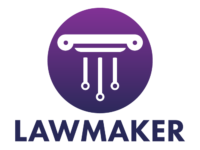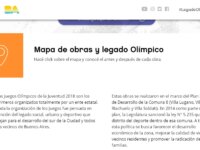In England, provision of and funding for adult social care has been subject to numerous reports, commissions and Government papers which have failed to produce agreement on how to tackle the urgent need for reform.
Involve was commissioned by two UK Parliamentary Committees to run a citizens’ assembly – a representative sample of the English public – to inform their joint inquiry on the issue.
It was the first time a UK Parliament has ever run a citizens' assembly to gather public views.
Case Studies
Innovations:
0
This website, as well as any data and map included herein, are without prejudice to the status of or sovereignty over any territory, to the delimitation of international frontiers and boundaries and to the name of any territory, city or area.
The project of monitoring open government commitments was developed with the objective of guaranteeing the fulfillment of the Brazilian initiatives in the scope of the Open Government Partnership. It is a process carried out jointly, periodically and proactively by government and civil society, with significant results for society as a whole. This approach is materialized through specific monitoring and evaluation actions that provide transparency regarding the implementation of Brazilian OGP…
It is currently difficult for the public to follow how EU laws are made. This is because the Council - where Member States are represented - remains relatively inaccessible. Documents are difficult to get hold of and Member States’ positions on a given law are not public. The EO opened an own-initiative inquiry into Council legislative transparency and has called for a series of transparency steps to be taken.
Based on the idea that cultural consumption is important both for enriching yourself as a person and strengthening the fabric of our society, in 2016 the Italian government introduced a 500€ cultural bonus for all 18-year-old people living in Italy. Young people can spend it on cultural items and activities such as going to theatres, concerts and museums, buying books, etc. They have to register online and then spend the money through the dedicated website 18app.it, accessible from any device.…
In order to rebuild the relationship between the administration and its stakeholders, the Chamber of Commerce of the Italian city of Cosenza has initiated project #OpenCameraCosenza. To achieve this objective, #OpenCameraConsenza rearranged the organizational and communication structures and together with the legal representative, the communications team used different tools to reach the administration's stakeholders: Facebook, Twitter, Instagram, Aurasma app, Qr-codes and the website.
LawMaker is a lobby for the lobbyless – a free advocacy tool for those of us who don’t have a professional working for them to influence our governments. LawMaker allows Americans to (1) crowdsource ideas for new laws, (2) build voter coalitions, and (3) engage politicians to advocate for change. Our mission is to democratize democracies by empowering the creation of new laws that originate from real people at the grassroots, instead of from lobbyists and wealthy special interests.
En 2015, le Parlement de Wallonie a engagé une réforme de son Règlement ayant notamment pour objectif d’associer davantage les citoyens wallons au travail législatif des députés.
Dans ce cadre, plusieurs dispositifs ont été mis en place dont la plateforme "Un décret par tous, un décret pour tous" qui vise à encourager les citoyens à intervenir directement dans la rédaction d’un décret sur base d’une problématique soulevée par un député.
Open policy-making is an opportunity for government and stakeholders to move from linear, polarized, single-issue, interest-based considerations to interactions that are networked, collaborative, opportunity-based and where complexity is viewed as an asset. Adapted for the Government of Canada context, Pol.is is a cost-effective and highly scalable, digital engagement platform that can be used as part of broader strategies to put people and robust evidence at the heart of government decisions.
The methodology of the “Brazil Transparency Scale” Survey consists of a checklist on 17 categories that cover all relevant aspects of the access to information regulation at the local level, the existence and functionality of the electronic Citizen Information Service (passive transparency), as well as the information disclosure of public funds, revenue, expenditure, public bidding, etc. (active transparency). The final evaluation score ranged from zero to ten.
The Youth Olympic Games Buenos Aires 2018 had as an objective to be organized in an open and transparent manner. As a result, the Olympic Legacy initiative was created to ensure relevant and timely access to information to all local stakeholders in regards to the event and its organization. This platform brought open government tools at the heart of the development of a global sports event. It had a significant impact in terms of promoting open data, higher quality data standards, improved…




